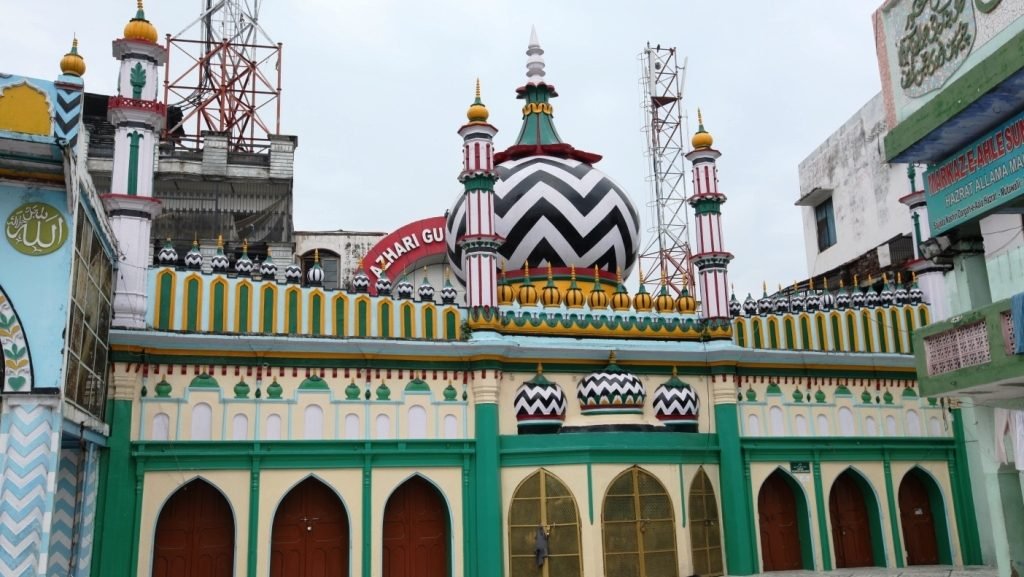Early Life and Education:
Birth:
Ala Hazrat was born on June 14, 1856, in Bareilly, into a family known for their Islamic
scholarship. His full name was Ahmad Raza Khan Qadri.
Education:
He showed a remarkable aptitude for learning from a young age, mastering Islamic sciences
like fiqh (Islamic jurisprudence), hadith (traditions of the Prophet), Quranic exegesis, Arabic,
Persian, and mathematics. He began issuing fatwas (Islamic legal opinions) at the age of 13, a testament
to his deep understanding of Islamic law.
Contributions to Islamic Scholarship:
Barelvi Movement:
Ala Hazrat founded the Barelvi movement, a revivalist movement within Sunni Islam. It
focuses on preserving traditional Islamic beliefs, particularly devotion to the Prophet Muhammad (peace
be upon him) and respect for the saints (awliya) of Islam. The movement emphasizes love for the Prophet
and opposes any practices that are perceived as innovations (bida') in religion.
Books and Writings:
He authored more than 1,000 books on a wide range of Islamic subjects, including
jurisprudence, theology, astronomy, mathematics, and Sufism. Some of his notable works include Fatawa
Razawiyya (a comprehensive collection of Islamic rulings) and Hadaiq-e-Bakhshish, a collection of
beautiful poetry in praise of the Prophet Muhammad (na’at).
Defender of Sunni Orthodoxy:
Ala Hazrat’s scholarly work sought to defend Sunni orthodoxy against other
interpretations of Islam that he believed strayed from traditional teachings. He is often regarded as a
defender of the Sunni creed, advocating for strict adherence to the teachings of the Hanafi school and
opposing practices that he saw as deviating from Islamic principles.
Spiritual Influence:
Sufi Practices:
Ala Hazrat was a devoted follower of the Qadri Sufi Order and emphasized the importance
of spiritual purification and love for the Prophet Muhammad. His teachings encouraged seeking closeness
to God through zikr (remembrance of God), prayers, and living a life that reflects the teachings of the
Prophet.
Love for the Prophet:
One of Ala Hazrat’s central themes was his deep and profound devotion to the
Prophet Muhammad (peace be upon him). He is well known for his poetic compositions that express love and
reverence for the Prophet, aiming to inspire a similar devotion in his followers. His na’at poetry
remains popular among Muslims in South Asia.
Dargah and Urs:
Resting Place:
Ala Hazrat’s mausoleum is located in Bareilly, which has become a significant site for
pilgrimage. Devotees from across India and beyond visit his shrine to pay their respects and seek
blessings.
Annual Urs:
The Urs (death anniversary) of Ala Hazrat is observed annually in Bareilly, attracting
thousands of followers. The event is marked by prayers, na’at recitals, qawwali sessions, and
distribution of food among the poor, reflecting the values of charity and love that Ala Hazrat
emphasized during his lifetime.
Legacy and Impact:
Global Influence:
The teachings of Ala Hazrat have spread beyond India, influencing Sunni Muslims in
countries like Pakistan, Bangladesh, South Africa, the United Kingdom, and the United States. His work
continues to be studied and followed by scholars and devotees.
Promoter of Traditional Beliefs: Ala Hazrat’s legacy is one of promoting traditional Islamic beliefs and
the Sunni Hanafi tradition. His influence has shaped the religious practices of millions of Muslims,
particularly in South Asia, who identify with the Barelvi school of thought.
Educational Institutions: His teachings are preserved and promoted through numerous madrasas (Islamic
schools) and religious institutions established in his name, such as Al-Jamiatul Raza, which continues
to teach Islamic sciences and the Barelvi doctrine.
Conclusion:
Ala Hazrat, Imam Ahmad Raza Khan, remains a towering figure in the history of Islamic scholarship and
spirituality in South Asia. Through his deep devotion to the Prophet Muhammad (peace be upon him), his
vast contributions to Islamic knowledge, and his efforts to preserve traditional Islamic practices, he
has left an enduring legacy that continues to guide the spiritual lives of millions.
His emphasis on love, respect, and adherence to the Prophetic tradition has made his teachings a
cornerstone of the Barelvi movement, ensuring his influence endures through generations.



